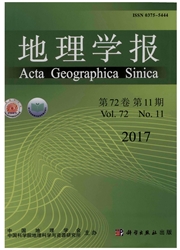

 中文摘要:
中文摘要:
以2005年和2010年两次大样本的北京市居民通勤时间调查为基础,对简单随机抽样和空间分层抽样方案进行研究,对两次抽样结果进行详细比较。结果表明:1)在缺乏先验知识的情况下,抽样调查应该选择简单随机抽样;在掌握了较为丰富的先验知识的情况下,并且研究对象具有空间相关性时,抽样调查选择空间分层抽样更为合理。2)进行空间分层抽样时,通过综合因素进行分层可以提高分层效率,并且使得抽样样本点的布局更加合理。
 英文摘要:
英文摘要:
Based on the two large samples from the surveys about the commute time in Beijing in 2005 and 2010, the schemes and results between the simple random sampling and stratified sampling methods are compared. The results show that the simple random sampling should be taken when there is an absence of prior knowledge. On the other hand, when there is abundant prior knowledge and the research objects are spatial correlated, the stratified sampling is more reasonable. For the spatial stratified sampling, stratifying the samples based on the comprehensive factors can make schemes more reasonable and improve sampling efficiency.
 同期刊论文项目
同期刊论文项目
 同项目期刊论文
同项目期刊论文
 期刊信息
期刊信息
